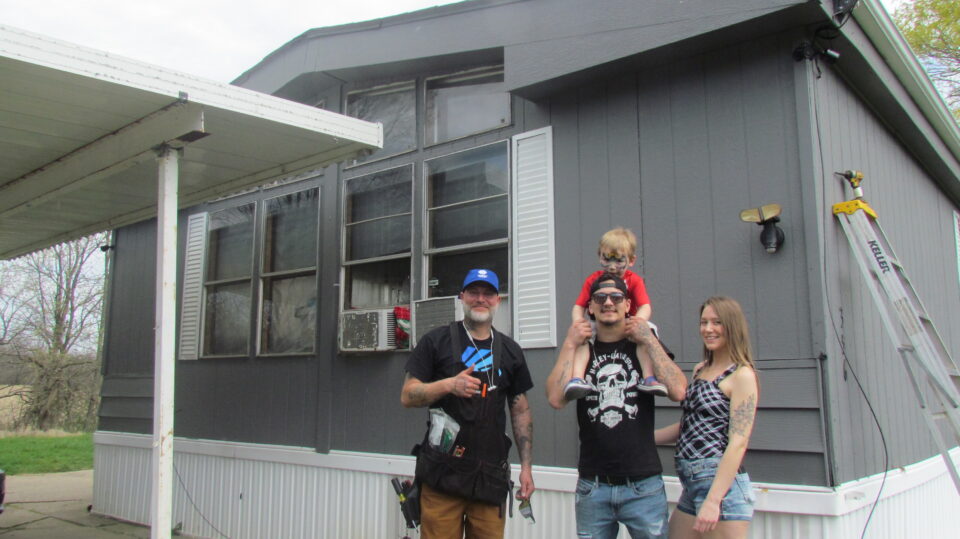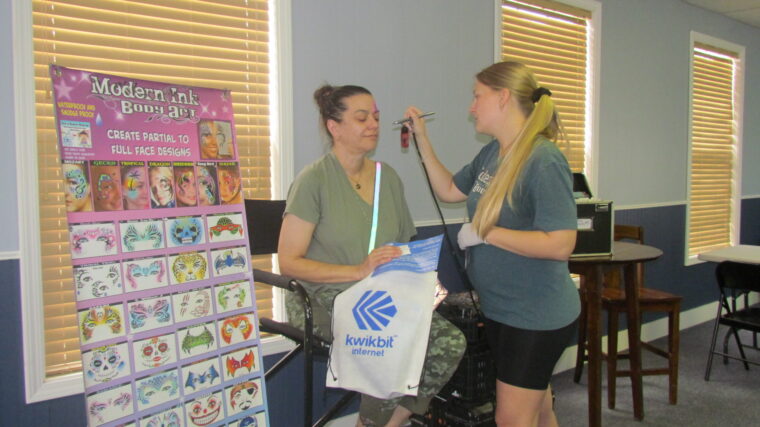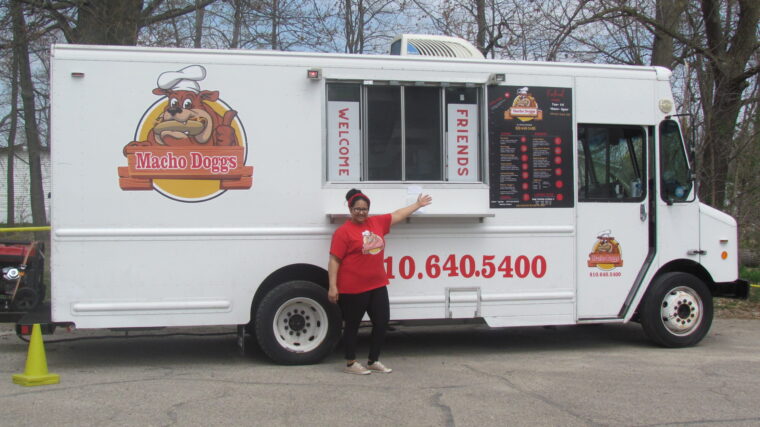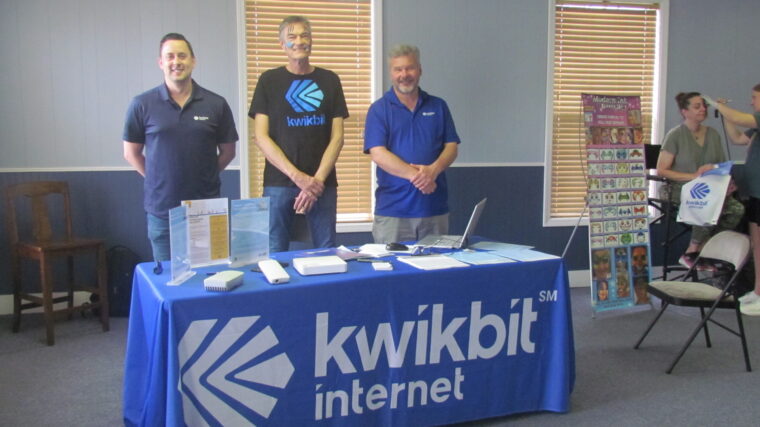
Featured photo: Michael Jordan-field installer for Kwitkbit internet, Justin Brown, Jaxson Brown and Haley Denty
Written by Tanya Terry, with photos by Tanya Terry
Despite how crucial the internet is today, an estimated 31.5% of Michigan households still lack reliable internet service, according to the Michigan Bureau of Labor and Economic Opportunity’s Michigan High Speed Internet Office. According to the US Census Bureau, over 13% statistic of Michigan residents are living below the poverty line. Often, these individuals and families just can’t afford internet.
Since mobile home parks are typically small, privatized and spread out, large internet providers often view this market as unprofitable.
When these providers skip mobile homes, it can lead to digital voids and frustration for mobile home park residents.
Justin Brown has been living in South Creek Mobile Home Park in Mt. Morris for about four years. He works over 40 hours a week as a semi-truck driver, and his spouse is a server at a restaurant. They have a 6-year-old daughter and a 3-year-old son.
Brown needs internet for checking emails for his job, as well as for educational apps for his children, entertainment and other activities.
During the approximately four-year period he’s been at South Creek, Brown had been with the same internet provider, despite the fact they have been raising his rates every six months to a year. Brown also said the internet service “goes in and out” regularly and sometimes crashes. He gave the lack of available internet providers as the reason for staying with them.
Brown called four or five internet providers previously, only to be disappointed. He said even “big name” providers would not serve him and his family because of where they live. Brown said he felt “stuck” and “monopolized.”
“Especially speaking on how the economy is doing, with it being so rough, it’s terrible,” stated Brown.
Brown enjoyed the way Kwikbit internet came into his community April 15, offering face painting and a food truck, along with their internet service being made available.

During a recent internet launch, Kim Lanko, a resident of South Creek Mobile Home Park, gets her face painted by Emmalee McCormack, an artist with Modern Ink Body Art.

Brendan Kelly, Kwikbit internet marketing director, worked for multiple fiber ISPs (internet service providers) before becoming a part of the Kwikbit team.
“Fiber is great technology,” he said. “But, if a fiber company cannot get their payback, they just don’t go in. That’s where we fill in. We can use the fiber technology and use radios to bring into the park, offering a fiber-like experience for a lot less cost.”
Joe Costello, chairman and CEO of Kwikbit internet, described the various technology used for internet service. This technology includes DSL (digital subscriber line), which involves transmission of digital data over telephone lines. There is cable, which uses anetwork of coaxial cables (the same cables used for cable TV) to bring internet signals to and from homes. There’s also fiber, internet delivered over fiber optic cable.
Costello describes the technology Kwikbit uses as a ”wireless version of fiber.” It’s called 60 GHz, the frequency of the wireless spectrum used. (It has also been called Wigig, indicating it’s wireless, like Wi-Fi.)
Costello describes fiber and 60 GHz technology as “symmetrical.”
“That means it’s as fast down as it is up,” he said. “This is especially important for Zoom calls, Face Time, security cameras and gaming, as well as working from home for some people. When people talk about fiber, they talk about one gigibit per second down and up.”
Though 60 GHz wireless technology and fiber are the same speed, which is often much higher than that of DSL or cable, when using fiber, there is a construction process involved.
“You’ve got to dig up the street and the ground to lay the fiber down to every single house, which is really time-consuming and expensive,” said Costello.
In addition, fiber companies need to get permission to enter mobile home communities from their owners, since they are typically considered private property. There are also usually no maps of what is underground in a private property.
“So, when they start digging, they could break a water line. They could cut an electrical cable or a gas line. So, it’s a mess. So, they don’t want to touch it. The other thing is there’s a bias against mobile home parks because the fiber companies think they’re poor people that won’t pay enough money for the service.”

Kwikbit internet’s model is tailored to mobile home and RV parks. Last year, they launched internet in 46 communities. The goal is to sign contracts for 150 new parks this year and launch in 100 parks in 2023.
Costello feels having good internet is required today to be a full citizen of the U.S. because it’s needed to school, work and getting information about prices for products, healthcare and government.
Costello said Kwikbit has been in recent conversation with at least 20 park owners about possible internet launches in their parks, with at least six being in the Flint area.
